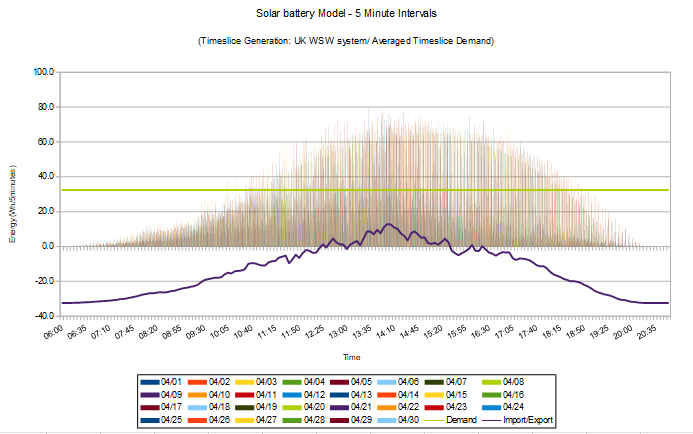Home Solar Batteries: 2.1 Modelling PV Charging
- Mar 1, 2019
- 2 min read

Introduction
This post specifically addresses the charging of domestic battery systems using solar PV and forms part of a series of entries looking to establish a reasonable view as to how the combination of solar PV and battery storage system should be modelled to ensure that information available to consumers should be considered accurate enough to establish a reasonable justification for investment in storage technologies.
If this is the first time you've accessed this information it is recommended that all of the relevant posts are considered in order through accessing the 'relevant posts' links
Investigation
This post introduces & summarises a number of common methodologies utilised to model the level of solar PV energy available to charge various battery storage systems in the domestic environment with a view to compare the relative complexities of charging models and how the they likely compare on accuracy.
Behind each of the summary headings below lies a detailed explanation which is available via links provides as 'Related Posts'

2.1a - Annual Supply
In the most basic form there's an assessment of the level of solar PV generated energy is available over the year from which an evaluation is normally made as to what proportion is available for export, which becomes the basis of any energy saving and related system cost justification.

2.1b - Monthly Supply
In this entry we'll look at increasing accuracy by modelling battery performance on data derived from various monthly sources.

2.1c - Daily Supply
We now consider sub-division of data to perform analysis based on a daily basis and consider whether doing so is likely to provide improvements in the overall accuracy of a model developed on this basis.

2.1d - Hourly Supply
Anyone who has experience in using solar V systems is well aware of the variability of generation, not only between months & days, but within a day, so how about looking at modelling generation using hourly data.

2.1e - High Resolution Data
Generation variability not only occurs between hours, there are often very great swings in the power available from a solar PV system over very few minutes. Here we will look at the options available to analyse data to a level of detail which would reflect generation variance measured in minutes.
Summary
Looking at the various analysis timescale options available, it becomes apparent that inaccuracy created by the smoothing effect of any form of averaging reduces as time-slice data resolution increases. It is therefore prudent to attempt to apply data with the highest possible degree of accuracy to the development of performance modelling, even though this may impact on the complexity of the model.
This is part of a series looking at domestic Batteries
Please read in conjunction with other 'Related Posts' by using the links provided
Interested in what you've just read?
Have a look around the site & keep returning, it'll grow!























Comments